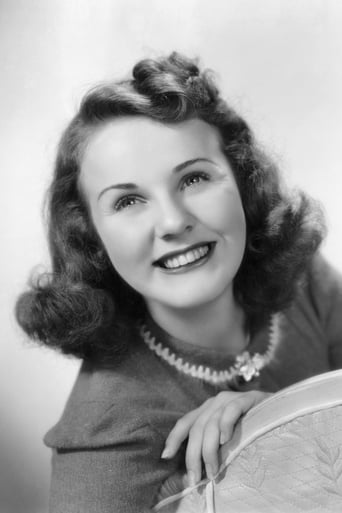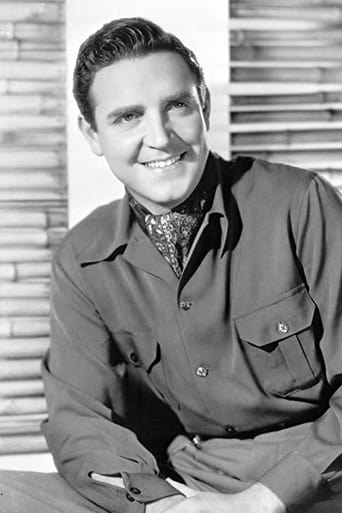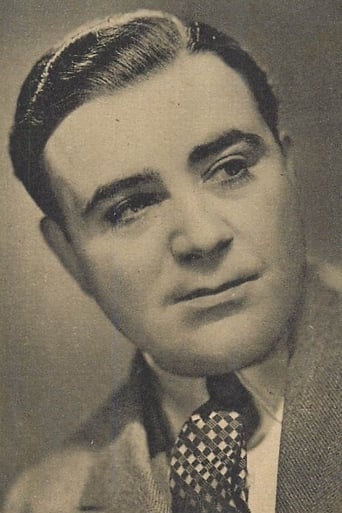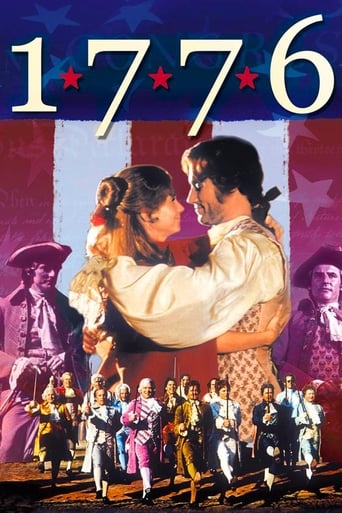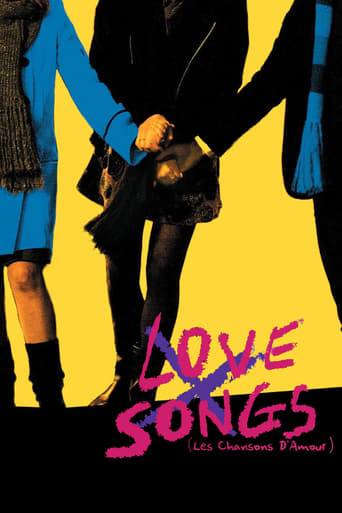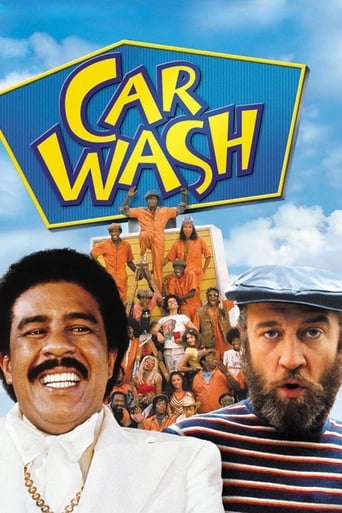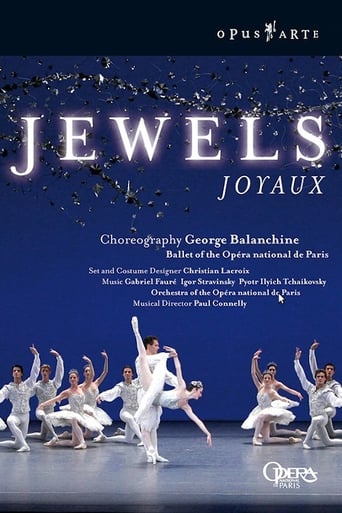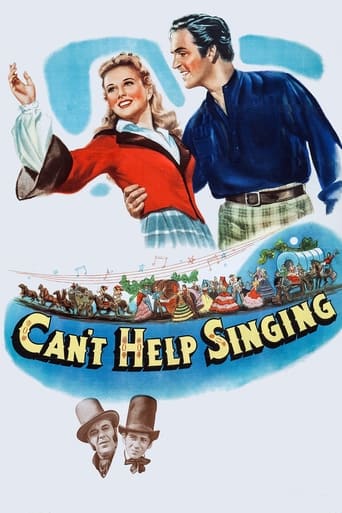
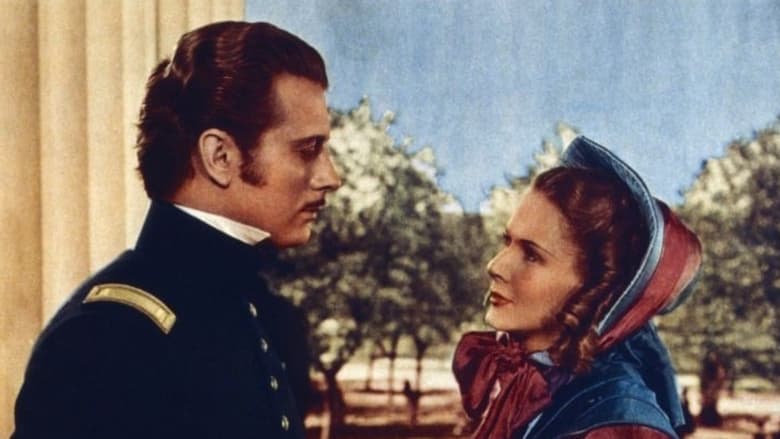
Can't Help Singing (1944)
With the California Gold Rush beginning, Senator Frost's singing daughter Caroline loves a young army officer; the Senator can't stand him, and has him sent to California. Headstrong Caroline follows him by train, riverboat, and covered wagon, gaining companions en route: a vagrant Russian prince and gambler Johnny Lawlor, who just might take her mind off the army.
Watch Trailer
Cast


Similar titles
Reviews
Very very predictable, including the post credit scene !!!
A Disappointing Continuation
Although I seem to have had higher expectations than I thought, the movie is super entertaining.
This is a gorgeous movie made by a gorgeous spirit.
There is a reason Deanna Durbin was one of the top Hollywood stars from the mid-Thirties through the Forties. She was a natural actress with a fine face and figure and a deep- throated soprano she knew how to use. She was one of those people the camera loves. Her personality, direct and warm, comes straight across to the audience. She could handle all the immaculate make-up Hollywood gave her as she matured into a young woman, but there always was something of the tomboy about her. She had a natural exuberance, a sense of humor and a good-natured willingness to take pratfalls or march into mud-holes. And she was a professional at her craft. In this movie, Can't Help Singing, watch how she manages to wander through the woods singing, through bushes and over hillocks, avoiding branches, and periodically fronting pretty scenery. This scene is shot in long takes. I have no idea how many takes it took, but Durbin manages to move, sing, smile, emote a bit and hit all of her marks without any sign of effort or evidence of an editor's scissors used to mask mistakes. By the time Durbin was 14 she was major box office, and stayed there until she retired in 1950 at 29. She never liked the glitz and fan adulation of stardom. She and her third husband left for France right after she retired and that was that. She still lives just outside Paris, has turned down any number of film offers and hasn't granted an interview with anyone since 1949. As a person who was grounded in reality and decided to live her own life, Deanna Durbin gets a tip of my hat. Can't Help Singing is a lush, colorful musical about a young woman, Caroline Frost, daughter of a wealthy senator, who leaves Washington against the wishes of her father to meet the man she intents to marry. He is a cavalry lieutenant, and the senator has seen to it that his regiment has been sent to California to guard gold during the start of the Gold Rush. Caroline is determined, and along the way has to deal with steamboats, Russian con-men, a cross-country wagon, Indians, finaglers, grafters, boss-men and card sharps. The card sharp winds up holding more than cards. He turns out to be the romantic lead. After 90 minutes of songs, comedy, adventures and the occasional kiss, all ends well for everyone. This was Deanna Durbin's only color movie and the studio went all out. Can't Help Singing is stuffed with wide-open vistas, detailed studio sets and costumes that would make Vincente Minnelli envious. What makes the movie memorable, however (in addition to Durbin), are two songs from the score by Jerome Kern and E. Y. Harburg. From the moment the movie starts and we see Durbin driving a two-horse carriage singing "Can't Help Singing," it's time to sit back and smile. The number is one of those big, fat, intensely melodic songs that few composers besides Kern could pull off. She sings it twice, the last time part of a production that takes place in an outdoor western bath house. It pops up now and then as a melodic background line. The song works every time. The second Kern/Harburg show-stopper is "Californ-i-ay," where "the hills have more splendor; the girls have more gender." It's another major production number with a big melody and clever lyrics. Everyone and everything from the two leads to giant vegetables take part. The movie is pleasant enough, although the two Russian con-men get tedious and Durbin's leading man, while manly enough, doesn't make much of an impression. The movie belongs only to Deanna Durbin, as all of her films did. With those two songs from Kern and Harburg, it's worth spending some time with.
"CAN'T HELP SINGING" - I first saw this charming colour film on television and treasured the tape recording for many years.My late mother liked Deanna and had a "Deanna Durbin" Hat and told me that she once visited Paris in the late 30's and misplaced this cherished hat and was asking everyone if they'd seen "mon chapeau" - she retrieved it! The hat is remembered from "100 Men and A Girl" with the theatre caretaker watching the moving feather as Deanna was hiding behind the theatre seats.The songs from "Can't Help Singing" are memorable and they are repeated nicely in the colourful dress-changing finale of the film. I believe "continuity" was a bit apprehensive, but Deanna said "no one will notice"! I love the public bath-house scene and note the slightly cross look Deanna throws her co-star's way when he insists on joining in the song at one point - as if she wants to keep the song's delivery entirely to herself! It is a great scene along with the bonus confusion at the end of it, when Robert Page eagerly awaits the unknown singer."More and More" is performed beautifully with Deanna serenading her travelling companion. I like the the bells at the end of "Any Moment Now" at which Deanna reacts. "Californ-i-ay" is another highlight. A super happy film with quite a bit of hilarity at the end.Thanks Deanna!
Deanna Durbin's one Technicolor movie gives her a decent showcase, and adds a Jerome Kern score plus plenty of good settings and scenery, to make for enjoyable light entertainment and pleasant viewing. Its pluses include Durbin's singing and the colorful outdoors photography.The period setting makes it different from the stories in most of Durbin's other movies, but fortunately her character (an independent-minded Senator's daughter) is similar enough to many of her other roles, in giving her a lively character with a variety of material to work with. (It wasn't really necessary, though, to make her hair so much lighter - her dark hair would have looked great in color.) The settings range from 1840s Washington DC to the unsettled expanses of the Old West. In itself, the period atmosphere works pretty well, and it also throws in one or two ironic details along the way.As Durbin's co-star, Robert Paige is a bit bland as a character, but his singing is up to par. Akim Tamiroff has a good role as one of the scamps heading west with Durbin's character. In smaller roles, Ray Collins and Thomas Gomez give good performances. The combination of Durbin's voice, energy, and charm with the period story and settings works rather well.
Toward the end of her career at Universal, they finally splurged on technicolor and fancy scenery for an enjoyable, tuneful,colorful western-comedy-romance, 'Can't Help Singing' featuring a musical score by Jerome Kern. Deanna's father (Ray Collins) wants her to forget the Army officer she loves (David Bruce) and sends him off to California during the Gold Rush days. Deanna decides to go west to find him--but en route falls in love with a handsome cowboy (Robert Paige). Against some stunning technicolor scenery, much of the music is given the full treatment by Durbin at her best--her voice was richer than ever. She does a standout job on 'Can't Help Singing', 'More and More', and 'Cali-for-ni-ay' and even duets with Robert Paige for a reprise of the title song (both in outdoor bathing tubs up to their necks in soap bubbles). Some of the comedy routines seem a bit strained and weak--but overall it's a wonderful showcase for Deanna Durbin and her fans certainly should appreciate the chance to see her at her radiant best. AMC shows it in a beautifully restored technicolor print.


